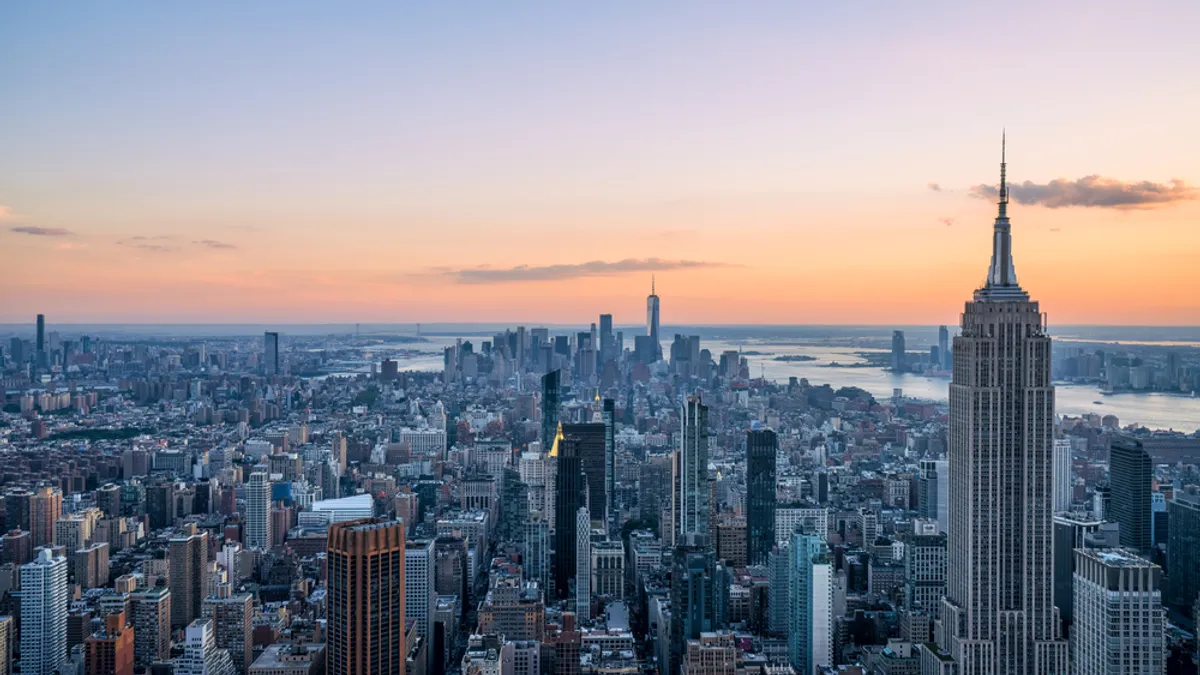The Manhattan lodging market saw year-over-year growth in RevPAR, occupancy and ADR in the first half of 2023, but growth decelerated each month from January to June, signaling changing traveler behavior.
In the first half of this year, the Manhattan lodging market saw year-over-year RevPAR growth of 23.6%, according to a report by professional services company PwC. While up from 2022, RevPAR growth decelerated each month in H1, going from 103.6% growth in January to 4.7% growth in June.
Occupancy in the city also saw decelerating growth in the second quarter of this year, with increases in occupancy highest in April (up 5.1% year over year) and lowest in June (up 1.7% year over year), the report details. In Q2, occupancy for the market stood at 83.9%, while ADR was $328.28. For Q2 alone, the market’s RevPAR increased 11.3% year over year.
Warren Marr, managing director, hospitality and leisure at PwC, attributes performance growth deceleration in H1 to decreased business transient demand.
“With return to office initiatives stagnating and resultant office vacancy rising, hotels reliant on the business transient guest are starting to see growth from that demand segment wane,” he said in a statement.
While business transient demand plateaus in Manhattan, group demand is improving in the city as more people working remotely look to attend larger in-person meetings or conferences, Marr told Hotel Dive. He said a similar trend is present in other large U.S. cities.
Earlier this year, PwC forecasted that individual and group business travel demand across the U.S. would hold strong in 2023 and actually offset decreased leisure demand.
Leslie Hale, president and CEO of RLJ Lodging Trust, echoed a similar idea in June, saying business travel demand across the country remained strong, with small group demand leading the charge.
Heightened international leisure travel also impacted performance growth in the Manhattan lodging market, according to Marr.
Throughout the first half of 2022, Marr said, various international COVID-19 restrictions still kept domestic travel strong. This year, those restrictions have been lifted, resulting in more outbound travel, and therefore fewer hotel guests in Manhattan. That surge, though, will likely stabilize next year, Marr said.
“As you go into next year, people will have been able to make their international trips, and not that they won't go again, but they'll have satisfied some of that need that they couldn't for quite a few years, and domestic travel will probably benefit,” he added.
Little new supply in the Manhattan lodging sector will also be positive for individual hoteliers, Marr said, presenting them the opportunity to raise rates to meet demand.
Major hotel companies Hilton and Marriott have eyed Manhattan, particularly Times Square, this year for new hotels. Earlier this month, the first Tempo by Hilton hotel opened in the TSX Broadway office building, and a few blocks away, the first Delta Hotels by Marriott property in the city opened.











